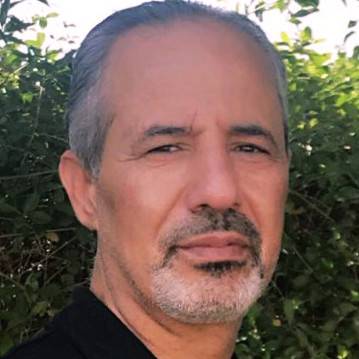EGYPTIAN democracy is alive and well. That is about the only positive observation on the current pro-Morsi and counter-demonstrations in major cities across the country. President Mohamed Morsi’s pronouncement on November 22 granting himself supreme powers instigated the current crisis.
His far-reaching decrees came on the heels of a Gaza ceasefire, which accorded him public approbation and international acclamation for averting another Israeli land invasion into the overcrowded, besieged Strip.
Whether the opportune timing was by design or pure luck, Morsi has miscalculated the public’s sentiment and vigilance. Egyptians long ago shattered the wall of fear in toppling their last dictator, and are determined never to revert to tyranny.
In his five-point doctrine, the president included two popular decrees dealing with the old regime to camouflage three diktats giving him the authority to do whatever is needed to safeguard “the revolution”, but whose revolution is he referring to? Is it the Muslim Brotherhood’s vision or the collective idea that ended decades of dictatorship?
It is worth remembering that the Brotherhood was a “Johnny-come-lately” to Tahrir Square, the cradle of the revolution Morsi is claiming to protect. Besides this, having been the Muslim Brotherhood’s second choice to run for president (their first was disqualified), many in the opposition fear that Morsi is a public figurehead for a shadowy government run by the party.
This was one of several reasons why protesters rejected outright the president’s assertion that his decrees were short-term, “expiring with the successful referendum on the new constitution”. The temporary phase was qualified by a “successful referendum”, which could last as long as needed or until a new constitution is certified.
Egyptians have lived for more than five decades under dictatorships with special extraordinary powers to protect a different “revolution”. In fact, they endured three decades of “temporary” emergency rule, which ended only with the ousting of Hosni Mubarak. The timing of Morsi’s sweeping power grab, just a week after the withdrawal of secularists and Christians from the Islamist-dominated Constitutional Assembly, is also of concern.
Following his speech, the new constitution was slated for completion by early Spring. Then, as if by magic, the assembly completed a draft after a nine-hour marathon session less than a week later and a referendum was scheduled for December 15.
In eviscerating and freezing the judicial branch of the government, Morsi was pre-empting a juridical review of the work of the assembly. This week his supporters prevented defiant Supreme Constitutional Court judges from entering their chambers. The court was scheduled to adjudicate on the legitimacy of the Islamist-dominated assembly on Sunday.
Opposing the president’s dictatorial measures are a wide-ranging coalition of progressive parties, most of the presidential candidates and Nobel Peace Prize winner Mohamed El-Baradei. The protesters are afraid that President Morsi is leaving them with one of two options: an Islamist-tinged constitution or a “temporary” dictatorship.
It is indisputable that the Brotherhood’s candidate won fair and square with more than 50 per cent of the public vote in the landmark presidential election. The vote was not, however, an endorsement for the party to design an unscrupulous system intended to halt the evolution of Egyptian democracy.
To preserve the people’s revolutionary achievements, a sustainable democracy must be inclusive; all citizens should be empowered to influence change and leaders should be elected on a rotational basis.
Morsi must choose between being a president for all Egyptians or a deputy for a shadowy party dictatorship. Hence, the protesters are now demanding a reversal of the latest dictatorial declarations. If this issue is not resolved soon, Morsi could face being stripped of his title through a presidential recall.
* Mr Kanj (http://www.jamalkanj.com/) writes a weekly column on Arab issues and is the author of “Children of Catastrophe,” Journey from a Palestinian Refugee Camp to America. This article was first published by the Gulf Daily News newspaper.
The views expressed in this article belong to the author and do not necessarily reflect the editorial policy of Middle East Monitor.











